Rock Choreographer Trey McIntyre’s Pretty Things Embraces the Cockiness of Dance For Houston Ballet — With a David Bowie Assist
A Long Delayed World Premiere That's Like No Other Show
BY Tarra Gaines // 05.20.22Male dancers take center stage in Trey McIntyre's Pretty Things. (Photo by Amitava Sarkar)
What do the peacock and rock star have in common? Award-winning choreographer Trey McIntyre ponders this question as he sets 11 Houston Ballet male dancers loose onto the Wortham stage to dance-fight for the spotlight set to the music of David Bowie in his world premiere dance event called Pretty Things.
PaperCity first spoke with McIntyre back in March 2020 on the eve of Pretty Things’ expected debut. But before the dancers could take their first strut across the stages, COVID shuttered performing arts venues and stages across the globe. Two years later, Houston Ballet decided this was one show that had to go on.
Pretty Things is finally set to make its world premiere this Friday, May 20th as part of Houston Ballet’s spring mixed repertoire program. We checked back with McIntyre to see if this dance themed around the unapologetic cockiness of live performance had changed in the wake of this delayed COVID debut.
McIntyre knows something about commanding the stage himself, but he doesn’t necessarily find the limelight all that pretty. He trained at the Houston Ballet Academy before becoming a company member early in his career. Yet he made the jeté offstage when the position of choreographic apprentice was created especially for him.
Since then McIntyre has gone on to start his own acclaimed dance company, then end it at a successful high.
In his career McIntyre has made more than a 100 ballets. Now for this season that returns the Houston Ballet to live performances, he comes home to debut his seventh Houston Ballet world premiere, one created especially for the company that first made him a professional dancer then a choreographer.
“I dropped out of the spotlight at a really young age and became an artist that made work for other people to perform,” McIntyre tells PaperCity. “Maybe that had to do with my judgements about it.”
For this dance, McIntyre wanted to take judgement out of the equation.
“I think especially with male dancers there’s a kind of inherent cockiness,” he says. Still, McIntyre insists on separating that love of performing, especially performing center stage with all eyes upon him, with a word like “narcissism.”
“It’s this idea of what it means being in the spotlight, to live your life like that,” he says. “I was interested in exploring that in a way.”
Still, McIntyre seems to want to set out upon that exploration without judging. He even makes the point that babies are in their own way little narcissists who believe that they are the center of the universe. It takes some time for any new human to recognize the difference between themselves and other people as separate individuals.
“If you take a more sort of Buddhist perspective why do we have to learn that we’re separate? If we are spiritually one then maybe that’s not so bad,” McIntyre muses.
Glam Rock Dance and Turning to David Bowie
McIntyre’s fascination with a performer’s ambition to claim center stage and every eye in the audience coincided with an interest in working with David Bowie’s music. McIntyre has used pop and rock songs as the score to several of his works, but the music of Bowie, the musical genius and consummate showman, seemed particularly apt for the concepts he’s examining in Pretty Things.
“His music has such a grand scale, an almost operatic quality,” McIntyre says of Bowie. “There’s so much theatricality in the music itself. The idea and the music seemed like it would support the other in a nice way.”
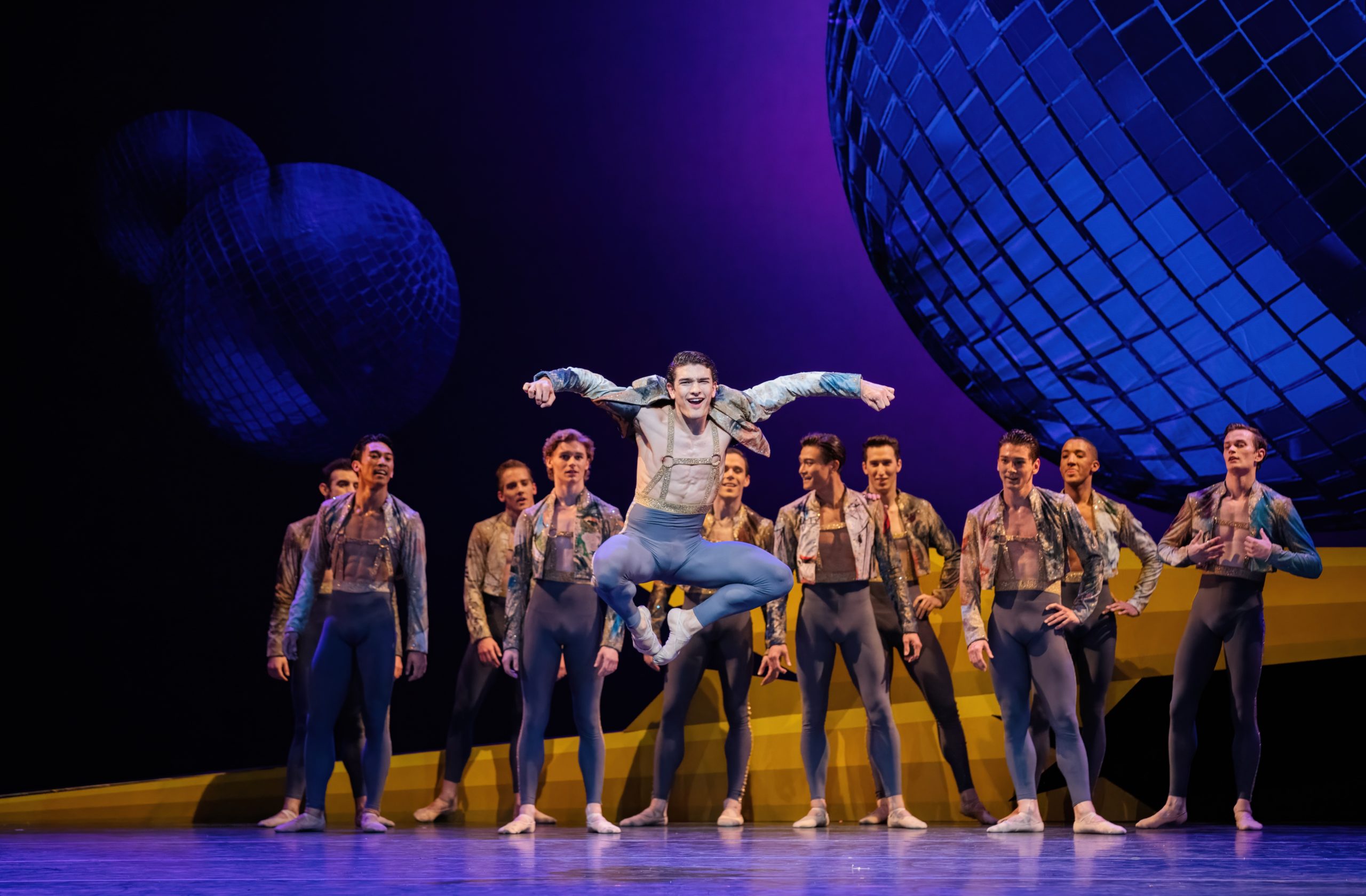
McIntyre chose eight Bowie songs to create the score of Pretty Things: “The Man Who Sold the World, Life on Mars?,” “Oh! You Pretty Things,” “Little Wonder,” “Ashes to Ashes,” “Ziggy Stardust,” “Young Americans” and “Changes.” He says working with separate songs from different albums is no more difficult than working with a whole classical music piece.
“I’ll start as if it’s a symphony,” McIntyre says. “Meaning I’ll come up with a structure where it feels like the music, by itself, is going through a journey. And thinking about how one idea leads into the next, only musically.
“Then I start to think about the idea and how I want to convey that. I’ll start to hear the music in a new way and begin rearranging it.”
While only Pretty Things has world premiere status, the other two pieces on the program, Christopher Bruce’s Hush and Jorma Elo’s ONE/end/ONE, were also created with Houston Ballet dancers when they first debuted to the world. And what a difference the preposition “with” makes. For choreographers making a new ballet, the dancers they initially work with can make significance differences to the creation.
McIntyre notes that he might have a grand vision for a new work as he enters the dance studio but not necessarily a specific one.
“I try to have it clear architecturally in my mind, having the scaffolding that it will hang on, but I save the actual movement for the studios,” he says. “I’ve found consistently that the best works occurs that way.
“It’s kind of a Zen practice, in trusting that the thing that happens in the moment is the best thing in that moment.”
Yet Pretty Things will remain unique in its birth since it was ready to rock and roll in that 2020 moment, but didn’t. Now McIntyre comes back to his creation with a new perspective about the joys of live performance and with some new dancers in the mix.
“It was a turning point for a lot of dancers,” he says of how the pandemic changed the entire dance world. “It was either dancers refortifying one’s love of dance or realizing that they really didn’t want to be doing this. There’s plenty of dancers who moved on.
“A dancer’s career is so focused and once you’re in the raging river you just go. There’s not a moment of spare. I think it’s rare that a dancer gets a real time to reflect.”
But for those who decided the dance and that occasional spotlight is where they want to be, that can make all the difference. Especially for a work like Pretty Things.
“I think the context of the work is in some ways greater — not in an expected way,” McIntyre says. “I just mean these dancers are so excited to be performing this work and finally getting it to the stage. I think the dancers who came out the other side of this pandemic do so with an enriched connection to the why of what they do.
“There’s a greater vitality. Walking into the studio they are so authentic, so authentically in their joy and pride and excitement about being seen in this work.”
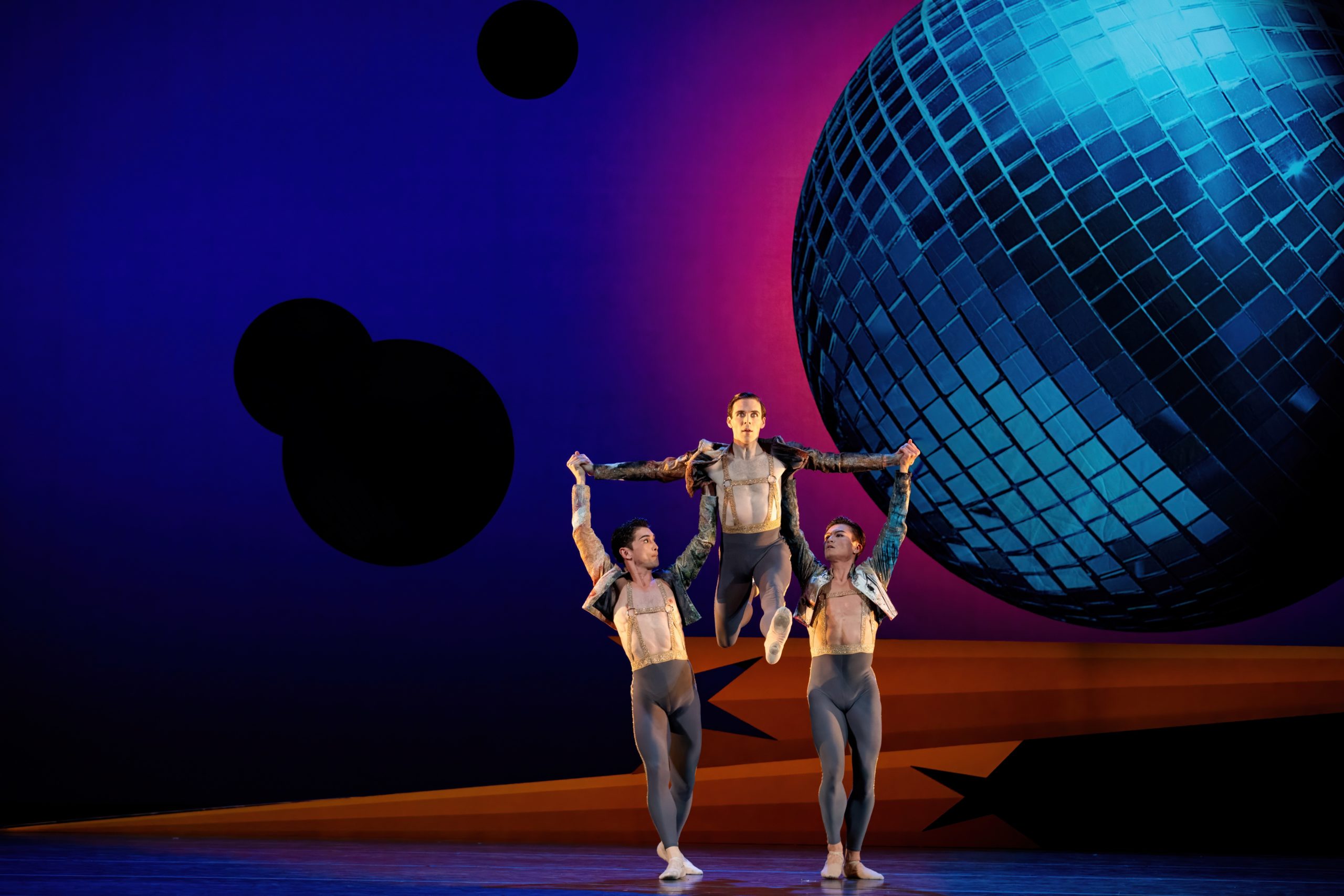
(Photo by Amitava Sarkar)
For the third time, McIntyre is working with designer Thomas Mika, who created the set and costumes for the work to make certain the connections to Bowie remain more abstract than direct homages.
“It’s important for me that work itself be respectful and be in harmony with the spirit of David Bowie’s work without actually referencing David Bowie and not just trading off the visual images that he created,” McIntyre says.
Perhaps connecting back to those ideas of baby centric universes, expect big bang, cosmic imagery with some psychedelic touches and disco balls.
You can catch Pretty Things at Wortham Center’s Brown Theater at 7:30 pm Friday, May 20; 7:30 pm Saturday, May 21; 2 pm Sunday, May 22; 7:30 pm Friday, May 27; 7:30 pm Saturday, May 28; or 2 pm Sunday, May 29. Tickets start at $25. For more information, click here.




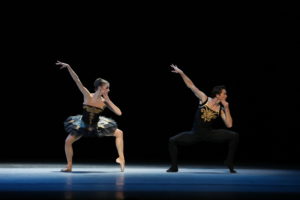

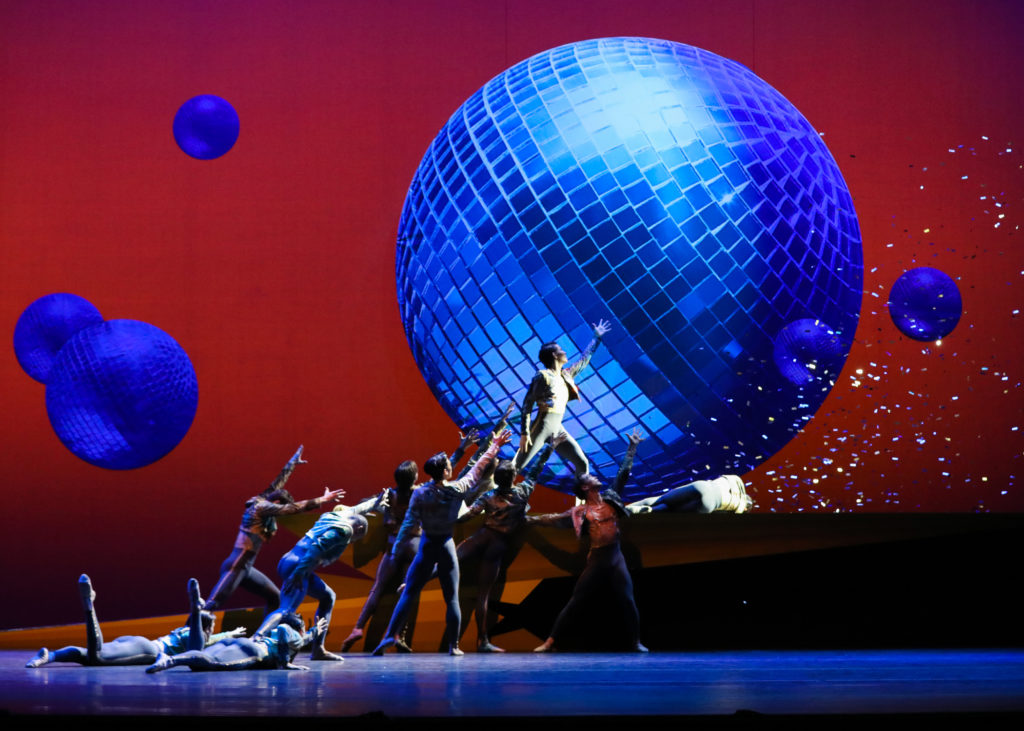



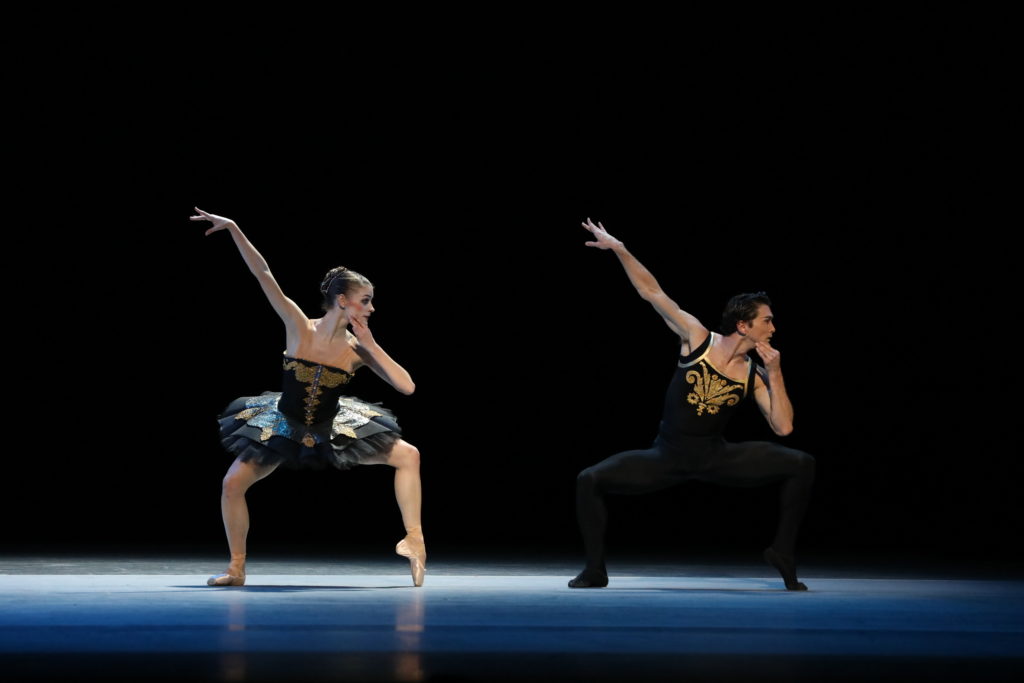





_md.jpeg)







